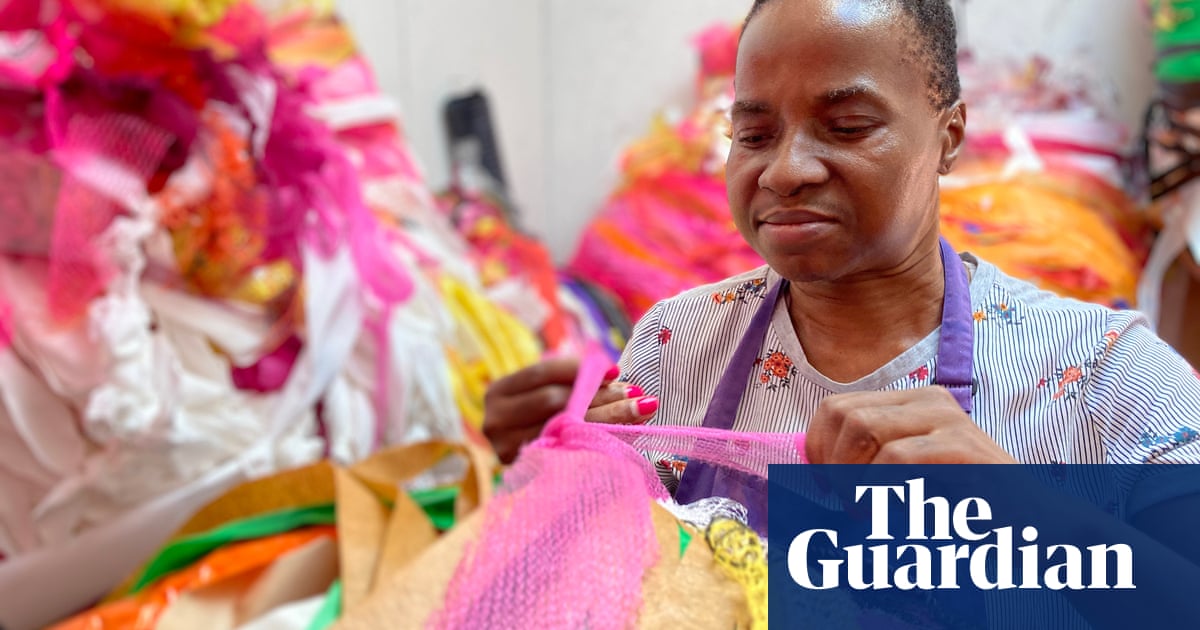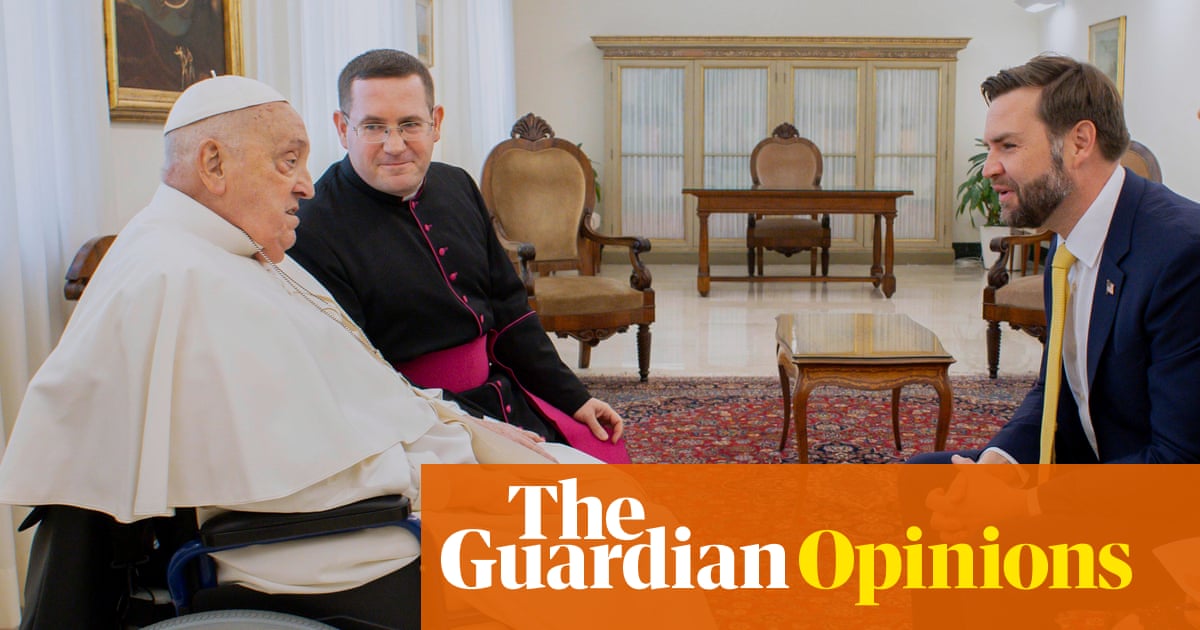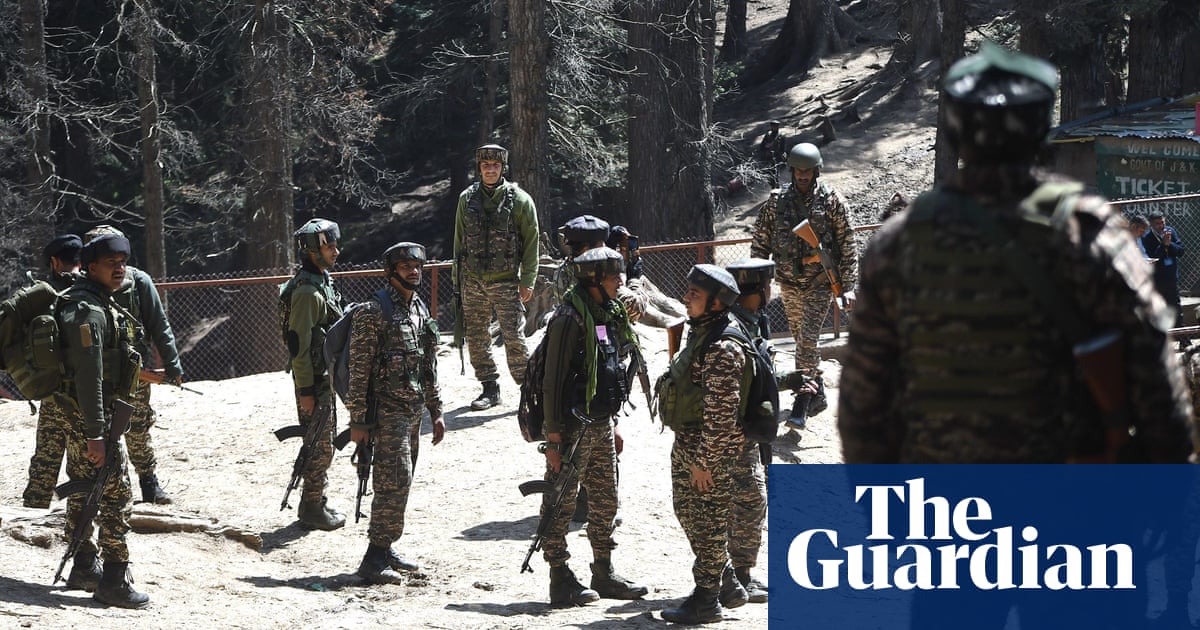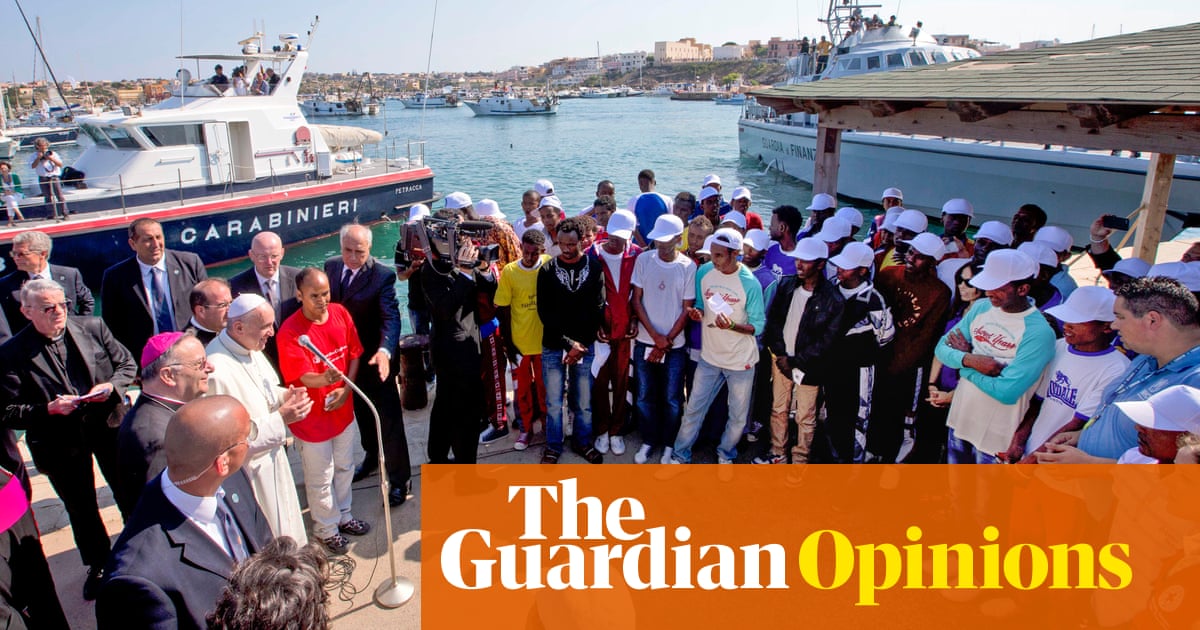After stepping off an aircraft belonging to the Italian secret services, Osama Najim was triumphantly carried on the shoulders of the crowd of supporters awaiting his arrival at Tripoli’s Mitiga airport.
Najim, also called Almasri, was not a footballer bringing home a trophy but a police chief wanted by the international criminal court (ICC) for alleged war crimes and crimes against humanity, including alleged murder, torture, enslavement, rape and sexual violence.
Two days earlier, Najim had been arrested by Italian police after the ICC had issued an arrest warrant. But the Italian government failed to validate the warrant and instead provided a government plane to fly him home from Turin.
As Tripoli celebrated, in Rome there was outrage and dismay. Opposition leaders demanded answers from Giorgia Meloni’s government, as critics accused Italy’s leadership of pandering to Libya because of its reliance on the north African country to stem the flow of migration towards Italy’s southern shores.

Human rights activists accused Italy of complicity in the long-documented mistreatment of migrants and refugees held in Libyan detention camps, while those most profoundly affected – the victims of Najim’s alleged crimes during their detention at the notorious Mitiga prison, one of the facilities under his watch – spoke of their pain at Italy “crushing” their already fragile hope of justice.
As the controversy raged on, Luigi Li Gotti, a lawyer and former justice ministry undersecretary, submitted a legal complaint that led to Meloni being placed under investigation for aiding and abetting a crime in connection with the Najim case. Meloni revealed the existence of the case against her – which includes interior minister Matteo Piantedosi, justice minister Carlo Nordio and Alfredo Mantovano, an interior ministry undersecretary – in a video message last week.
“I was appalled by everything that was happening,” Li Gotti told the Observer. “Why did we give back this [alleged] criminal who did all these things using such vicious methods, now allowing him to carry on doing those things?”
Najim, who also has Turkish and Dominican Republic citizenship, arrived in Europe from Tripoli on 6 January, making a stopover at Rome’s Fiumicino airport before travelling to London. A week later, he went by train to Brussels, before moving on to Germany, where he hired a car – using a Turkish driving licence – that he intended to drop off at Fiumicino.
The ICC arrest warrant was issued in six EU states, including Italy, on 18 January, the day Najim arrived in Turin. He went to a Juventus-AC Milan football match that evening and was arrested in a hotel room the next day by Italian police after a tip-off from Interpol.
The news of his arrest first circulated on Libyan social media networks before it was reported by Nello Scavo, a journalist on the Italian newspaper Avvenire, via Italian sources.
after newsletter promotion

Italy’s justice ministry issued a vague statement regarding the ICC warrant but the arrest was only officially confirmed once Najim had been released and repatriated.
Amid lingering questions over why Italy did not validate the warrant, as it is obliged to under the ICC’s Rome statute, Meloni said Najim had been swiftly deported because he had been considered a risk to Italy’s national security.
“That we expelled him because he was deemed to be a highly dangerous character was even more mind-blowing,” said Li Gotti.
In her video message, Meloni took issue with Li Gotti and Rome’s chief prosecutor, Francesco Lo Voi, insinuating that the investigation was part of a leftwing vendetta against her. “I am not blackmailable, I am not intimidated. Onwards and upwards,” Meloni told her social media followers.
On the contrary, critics believe the Italian government might have been blackmailed by Libya, its former colony. Apart from a deal that involves Italy paying the Libyan coastguard to stop migrant boats from leaving, the country has wide-ranging political and business interests in Libya. The country is also important for the success of Meloni’s much-touted Mattei plan, aimed at increasing European cooperation on the African continent in return for curbs on irregular migration.
“In the absence of a precise explanation from the authorities, we only have a few theories,” said Scavo, who wrote about Najim in abook, Le Mani sulla Guardia Costiera, in which he describes the police chief as being “among the figures capable of blackmailing Italy and Europe with boats”.
Scavo added: “We know there was a lot of agitation in Libya over the arrest. So a danger was certainly perceived, a threat also for the Italians and the Italian companies who are in Libya. However, I believe this also represents an element of weakness for Italy, a G7 country, which felt threatened by Libya. If anything, this reflects greater strength from Libya’s power system.”
Meloni has long been at war with Italy’s judiciary, with her allies claiming she is being persecuted in a similar way to the late former prime minister Silvio Berlusconi. Relations are especially bitter as a result of judges having disrupted Italy’s controversial migrant scheme with Albania.
Moreover, it is unlikely that Meloni will face trial, especially given that it would need approval from parliament, where her government has a majority.
“Everybody knows that the investigation will not result in anything,” said Christopher Hein, a professor of immigration law and policy at Luiss University in Rome. “But this risks reducing the attention on what really happened in this scandalous Najim case.”

.png) 2 months ago
30
2 months ago
30













































